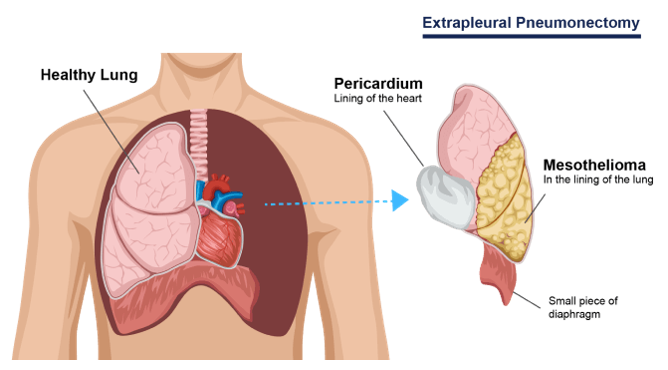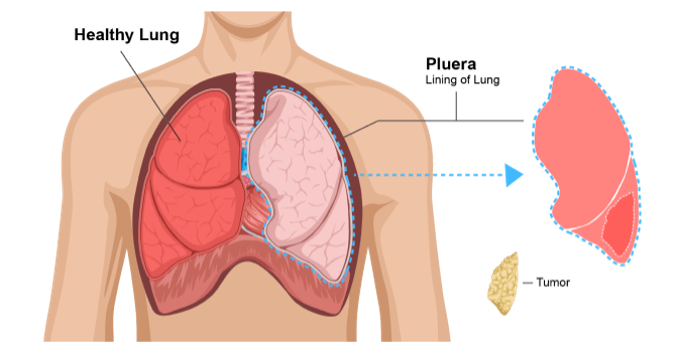The Patient Journey
Trimodality Therapy
A combined approach of induction chemotherapy, followed by radical cytoreductive surgery and then radiation therapy is known as trimodality therapy. Trimodality therapy can improve quality of life and overall survival.
It is only a suitable treatment option for patients who:
- Are known to have early-stage disease with minimal symptoms
- Have had a positive clinical response to induction chemotherapy
- Have nil evidence of lymph node involvement or other cancer disease
- The surgeon is confident all tumours can be safely removed
- Are deemed able to live independently with one lung (Pulmonary Function Testing)
- Are medically and physically fit (Cardiology Assessment)
- Have the mental strength to endure the prolonged treatment
- Have a strong support network
Radical surgery is performed with curative intent aiming to achieve complete macroscopic resection. It is offered in New South Wales by one experienced Cardiothoracic Surgeon. There are two radical surgical options.
Extrapleural Pneumonectomy (EPP)
Involves the removal of the affected lung, parietal pleura, hemi-diaphragm, and pericardium in one piece (en-bloc). The pulmonary lymph nodes are also removed, and the defects around the heart and diaphragm are reconstructed with a layer of gortex mesh.

Image: Dryfoos, C. (2022). [Online Image]. Mesothelioma Treatment. https://www.mesotheliomaveterans.org/treatment/
Extended Pleurectomy/Decortication (eP/D)
The total parietal and visceral pleurectomy plus resection of the hemidiaphragm and pericardium as required (the lung remains insitu).

Image: Dryfoos, C. (2022). [Online Image]. Mesothelioma Treatment. https://www.mesotheliomaveterans.org/treatment/
Controversy Around Trimodality Therapy
The role of trimodality therapy across international practices has been debated since the publication of the Mesothelioma and Radical Surgery (MARS) randomised trial which suggested that EPP offers no benefit and possibly harms the patient.1 In NSW, we see positive patient outcomes and prolonged survival as only those patients that meet the strict criteria mentioned above are offered the surgery. A second trial ‘MARS 2’ is currently underway comparing eP/D with no eP/D for patients with pleural mesothelioma.2
References
- Treasure T, Lang-Lazdunski L, Waller D, et al. Extra-pleural pneumonectomy versus no extra-pleural pneumonectomy for patients with malignant pleural mesothelioma: Clinical outcomes of the mesothelioma and radical surgery (MARS) randomised feasibility study. The Lancet Oncology. 2011;12(8):763-772.
- Lim E, Darlison L, Edwards J, et al. Mesothelioma and Radical Surgery 2 (MARS 2): protocol for a multicentre randomised trial comparing (extended) pleurectomy decortication versus no (extended) pleurectomy decortication for patients with malignant pleural mesothelioma. BMJ Open 2020;10.


